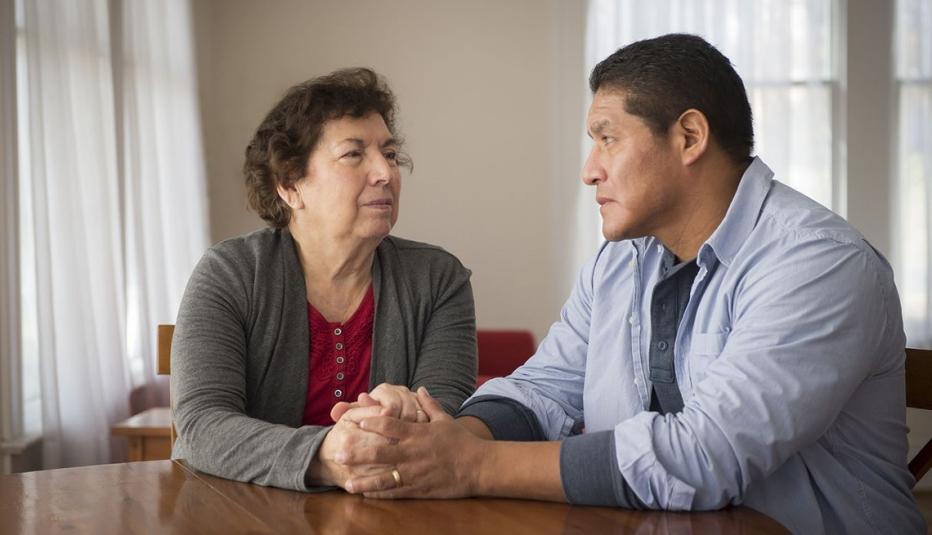AARP Hearing Center
In Puerto Rico, strong family ties translate into a strong preference for caregiving at home — yet many communities lack the resources needed to fulfill that desire.


Results of a new AARP survey show 84% of Puerto Rican voters ages 45-plus would rather stay at home with caregiver assistance than live in a nursing home or assisted-living facility. To enable that choice, the survey found widespread support among Puerto Rican voters for more services such as home health care, housekeeping, transportation, meal delivery, and respite care.
About two-thirds of Puerto Ricans polled have experience with unpaid family caregiving, while the rest anticipate they will likely become a caregiver for an adult loved one sometime in the future.
Regardless of whether they have provided personal caregiving, nine in 10 Puerto Ricans believe it is very or extremely important to have additional resources and training for family caregivers.
Services most helpful to caregivers, according to the AARP survey: transportation to medical appointments (70%), help with household chores (69%), and assistance with meals (65%). About two-thirds of respondents would like more information about available caregiving resources.
According to AARP's research, 68% of caregivers also provide financial assistance and 21% had to quit their jobs to be able to support their loved one.
The most common caregiving duties include helping with household chores, meals, transportation, and medication. Sometimes caregiving needs call for caregivers to move in with the care recipient (42%), make changes to their home (47%), or move to a new home altogether, one that's better suited for their loved one (15%).
In sum, caregiving can take a toll.
Caregivers in Puerto Rico report challenges with getting enough rest, having time to socialize, balancing work responsibilities, and overall stress as well as health problems. The pandemic has added another layer of challenges, with about half of current caregivers saying it has had a negative impact on their mental health, and 41% saying it has hurt the mental health of the loved one in their care.
Respite care can give caregiving families a break from everyday strains and stresses. The survey showed that 62% of current or former caregivers say respite care is extremely important, while 52% of noncaregivers feel the same.
Many Puerto Ricans feel their communities fall short of adequately supporting family caregivers with needed services. One in five (19%) do not think they would have access to adequate legal assistance if it was needed. The AARP results indicate the most common places people turn to for information about community services are health care providers, government agencies; family, friends, and hospitals or health care facilities.
Methodology
The nationally representative survey of 707 adults age 45-plus in Puerto Rico was conducted May 20–June 15, 2021. The voters, who were given the option of answering the poll in English or Spanish, were reached either by cell phone, landline, online, or in person.
For more information, please contact Laura Skufca at lskufca@aarp.org. For media inquiries, contact External Relations at media@aarp.org.
Suggested citation:
Skufca, Laura. 2021 Puerto Rico Family Caregiving Survey. Washington, DC: AARP Research, November 2021. https://doi.org/10.26419/res.00478.001































.jpg?crop=true&anchor=13,195&q=80&color=ffffffff&u=lywnjt&w=2008&h=1154)































